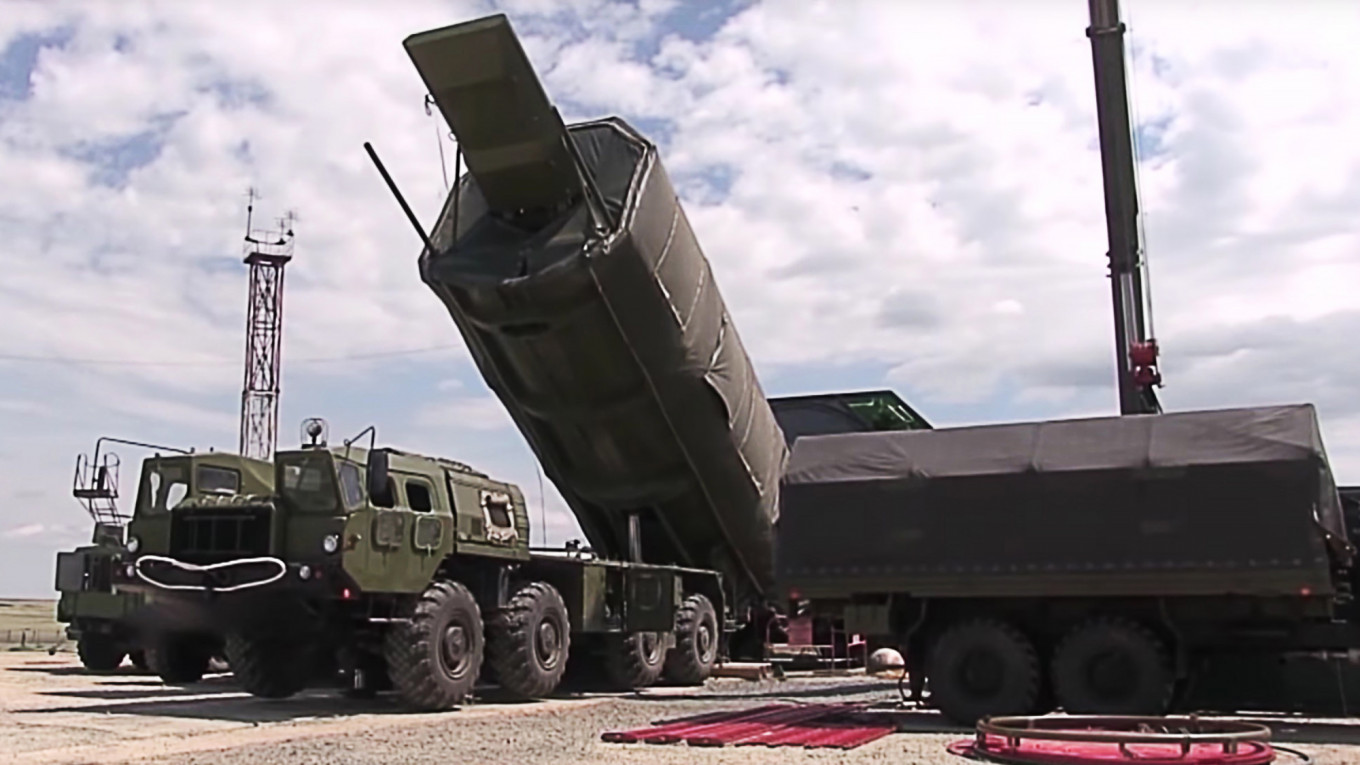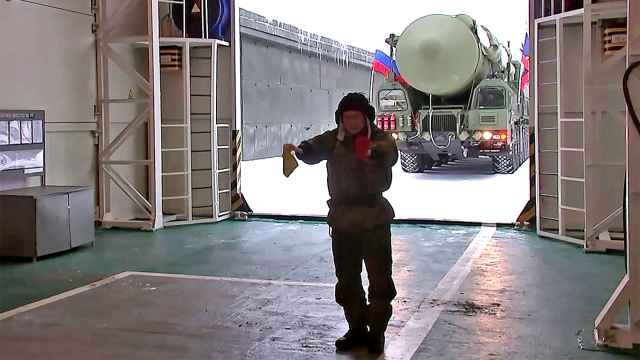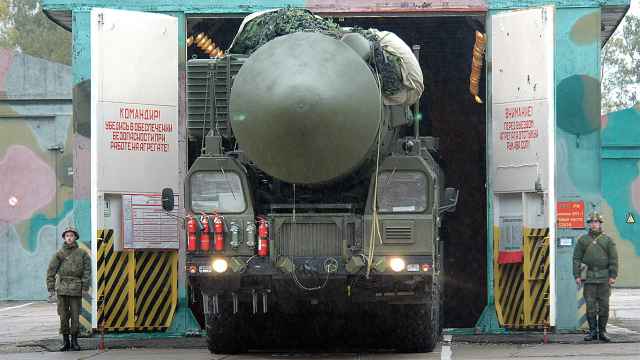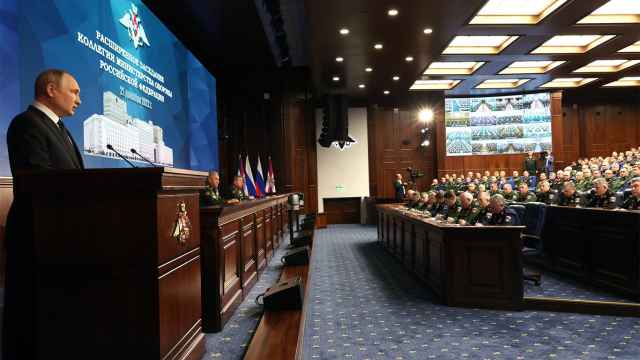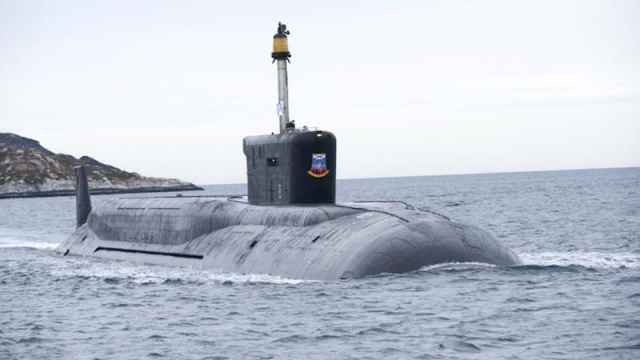The Avangard, the Kinzhal and now the Tsirkon – Russia is leading the race to develop a range of new hypersonic weapons that President Vladimir Putin has dubbed "invincible."
Moscow's latest step came this week with another successful test of the Tsirkon, a ship-launched hypersonic missile.
Fired from one of Russia's most powerful warships, the Admiral Gorshkov frigate, a Tsirkon traveling at seven times the speed of sound flew more than 350 kilometers to hit a target on the coast of the Barents Sea.
If more tests are successful, the Tsirkon looks set to join Avangard hypersonic glide vehicles and the air-launched Kinzhal (Dagger) missiles in Russia's arsenal of hypersonic weapons.
Hypersonics are able to travel at velocities of at least five times the speed of sound and maneuver in mid-flight, making them much harder to track and intercept than traditional projectiles.
And experts agree that – for now at least – Russia has an edge in their development.
"No one except Russia has hypersonic weapons but everyone wants them," Moscow-based independent defense analyst Alexander Golts told AFP.
Putin used his state-of-the-nation address in 2018 to first present an array of hypersonic weapons, boasting that they could circumvent all existing missile defense systems.
'Remarkable' achievement
The United States, China, France and other major powers have announced plans to develop their own hypersonic weapons and are expected to soon catch up.
"The Russians are fully aware that their head start is temporary," said Igor Delanoe, deputy director of the Franco-Russian Observatory in Moscow.
"The Americans are going to catch up in a matter of months, a year and a half or two years at the most," he said.
This week's test did not go unnoticed.
Afterward Pentagon spokesman John Kirby said Russia's new hypersonic missiles "are potentially destabilizing and pose significant risks," while a NATO official said the weapons were creating "a greater risk of escalation and miscalculation."
But analysts say that while they are impressive, the hypersonics are not game-changing technology.
Golts said the Avangard – which Russian officials say has reached speeds of 33,000 kilometers per hour during tests – was a "remarkable" scientific achievement.
"But from a military point of view, there's absolutely no difference between it and a regular warhead which would simply follow a ballistic trajectory in space and then hit U.S. territory without any maneuvers," he said.
With the second-largest arsenal of nuclear weapons in the world and a huge cache of ballistic missiles, Russia already has more than enough military capacity to deter its enemies.
Bargaining chip
So what is the point of spending billions on super-fast new weapons?
"The idea isn't necessarily to use these weapons for anything... it's to show that any weapon that anyone else can develop, you will have first. You'll always be on the cutting edge," said Cameron Tracy, a research scholar at Stanford University's Center for International Security and Cooperation.
They also give Putin another chip to play at any negotiating table with Washington over arms control.
"This is a common strategy to develop new weapon systems with the idea that you won't actually deploy them, but you'll trade them away in negotiations," Tracy said.
Putin and U.S. President Joe Biden have talked of renewing negotiations on "strategic stability" after Donald Trump withdrew the United States from several arms control agreements with Russia.
"It is certainly the opening phase of an arms race... It is only a matter of time before we see smaller powers developing (hypersonics) as well," said Hans Kristensen, an expert on nuclear weapons at the Federation of American Scientists.
"No one really knows how this is going to play out," he said.
"For now it's a dangerous race... if and when they add nuclear capability to the missiles, it will create even more dangerous security challenges."
A Message from The Moscow Times:
Dear readers,
We are facing unprecedented challenges. Russia's Prosecutor General's Office has designated The Moscow Times as an "undesirable" organization, criminalizing our work and putting our staff at risk of prosecution. This follows our earlier unjust labeling as a "foreign agent."
These actions are direct attempts to silence independent journalism in Russia. The authorities claim our work "discredits the decisions of the Russian leadership." We see things differently: we strive to provide accurate, unbiased reporting on Russia.
We, the journalists of The Moscow Times, refuse to be silenced. But to continue our work, we need your help.
Your support, no matter how small, makes a world of difference. If you can, please support us monthly starting from just $2. It's quick to set up, and every contribution makes a significant impact.
By supporting The Moscow Times, you're defending open, independent journalism in the face of repression. Thank you for standing with us.
Remind me later.


